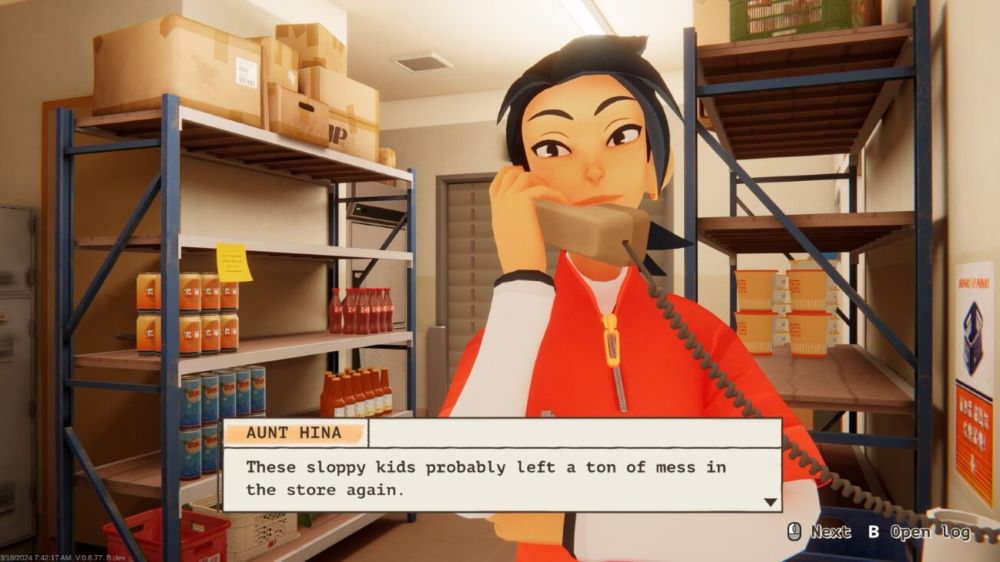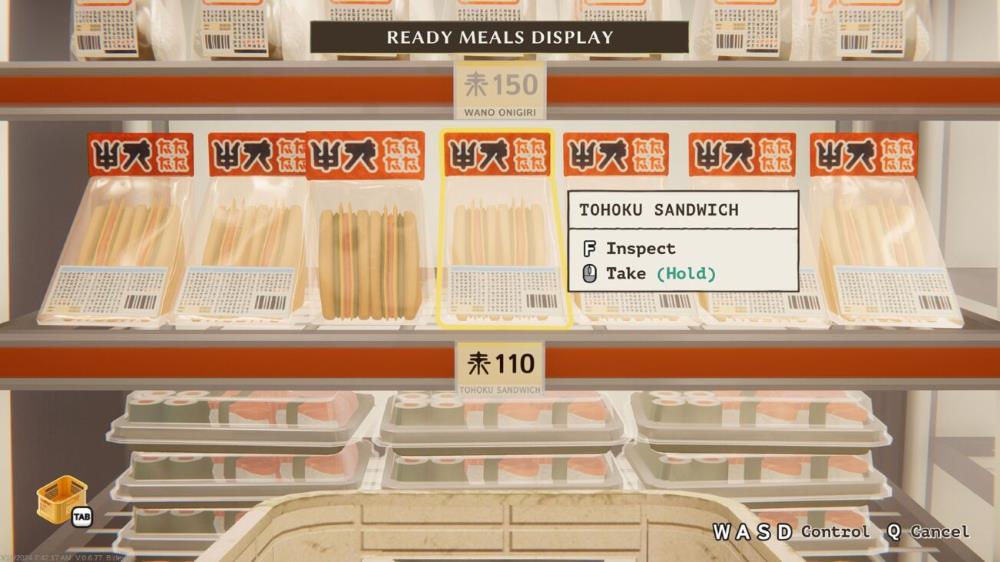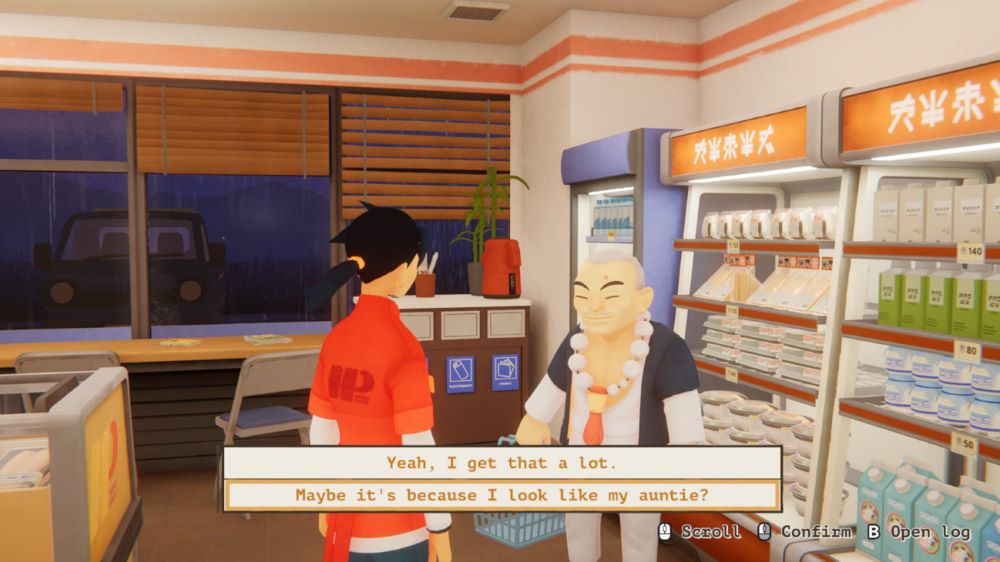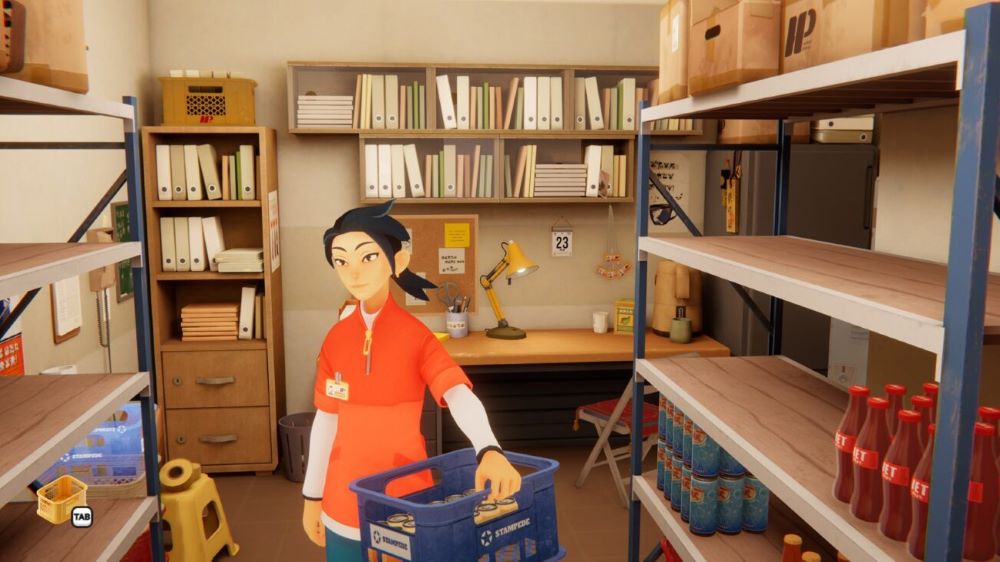InKonbini is a Cozy and Meditative Narrative Adventure Targeting Early 2025
InKonbini is a choice-based cozy game set in a convenience store in rural Japan. It aims to create a meditative experience focusing on the small things in life, where actions ultimately have their consequences.
Dima Shen, game director for InKonbini and the founder of Nagai Industries, walked us through the game and its intricacies to learn more about this intriguing title.
Players will embark on a journey as Makoto Hayakawa, who temporarily steps away from her college studies to assist her aunt in managing Honki-Ponki, a quaint convenience store in her small hometown. The heart of this narrative-driven simulation game lies in the lives of the store’s regular patrons, which the game paints a vivid portrait of the local community through its many small stories.
Set against the backdrop of rural Japan in 1993, inKONBINI transforms the humble convenience store into a microcosm of the entire village. Every detail evokes a palpable sense of time and place, and the landline phone, a seemingly mundane fixture, assumes a pivotal role in the game as it facilitates food deliveries and connects Makoto to her mentor, Aunt Hina.

Delving deeper, the store ledger becomes a treasure trove of insights. Here, Makoto uncovers the stories of daytime clerks who unwittingly challenge her during their shifts. While direct interaction with these characters is limited, the ledger provides glimpses into their lives, adding depth to the overall experience.
One key feature of the game is the store ledger where Makoto keeps her notes and reminders. Here, Makoto uncovers the stories of daytime clerks who unwittingly challenge her during their shifts. While direct interaction with these characters is limited, the ledger provides glimpses into their lives, adding depth to the overall experience.
inKONBINI masterfully captures nostalgia, drawing from the developers’ collective memories of childhood. Each interaction with the store’s objects conjures a sense of time past, and game director Dima Shen and his team have meticulously crafted these details to transport players to the early 1990s.
The gameplay loop seamlessly blends store management and customer interactions. As Makoto, you’ll ensure the store runs like clockwork, restocking shelves, making phone calls, and preparing for the day ahead.
To further recreate an authentic feel, Shen even attempted to work as a clerk in a real convenience store, gaining firsthand experience. Although politely asked to leave due to his concept research, Shen and his team continued their exploration by interviewing various convenience workers to gain more insight that eventually formed the heart of inKONBINI.

As players manage the store, their decisions ripple through the lives of regular patrons. The game seamlessly transitions between store management tasks and heartfelt conversations with customers. Four familiar faces visit the store daily, each with their own unique routines and brand loyalties. Makoto’s ability to disrupt these routines opens doors to meaningful conversations and influences their lives.
The dialogue choices players make carry consequences, shaping the branching storyline. While the game avoids tedious micromanagement tasks, it thrives by connecting with customers and uncovering their stories. With an ASMR-inspired soundtrack enhancing the meditative experience, inKONBINI invites players to discover the joy and wonder hidden within the mundane routine of a konbini worker.

Shen emphasized the conversational aspect of the game instead of the more tedious store management tasks to maintain a more meditative and cozy atmosphere rather than a management-focused simulator.
Even if you don’t pay attention to the store management portion of InKonbini, the customers surely will. By restocking products in a certain way, you have a chance to influence their purchase decisions, which can disrupt the flow of their lives. While there is a conclusive resolution to the game, players can take a different approach to reaching this conclusion depending on their playstyle and choices.

InKonbini will take about 4-5 hours to complete, with a focus on replay value to check out different choices from previous runs. It touches on the concept of the uniqueness of meeting everyday people, and while no encounter will be the same, this feature will allow players to experience all branching paths.
InKonbini is currently in development, with a target release date of early 2025 for PS5, Xbox Series, Switch, PC, and Mac.




